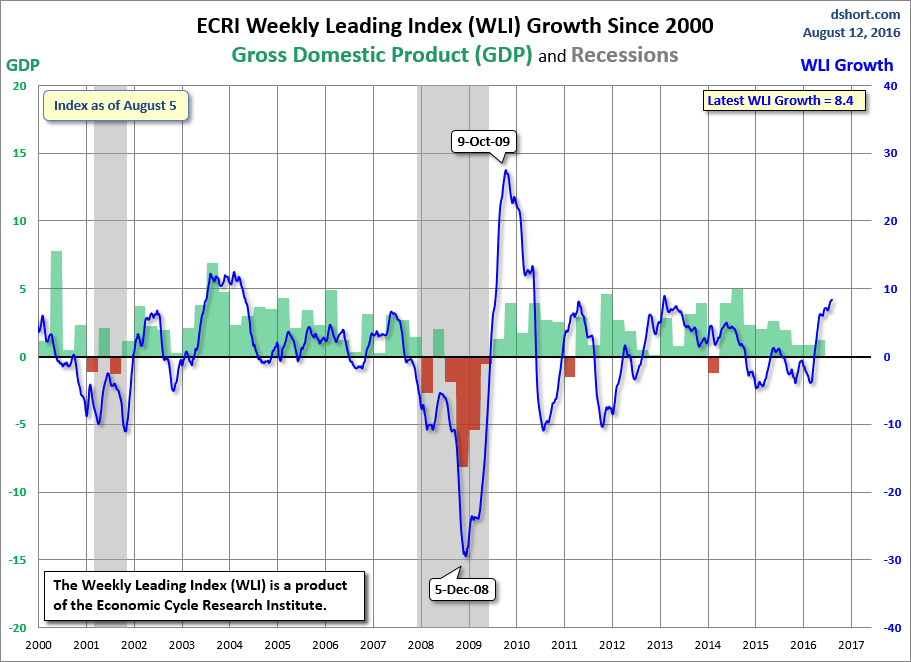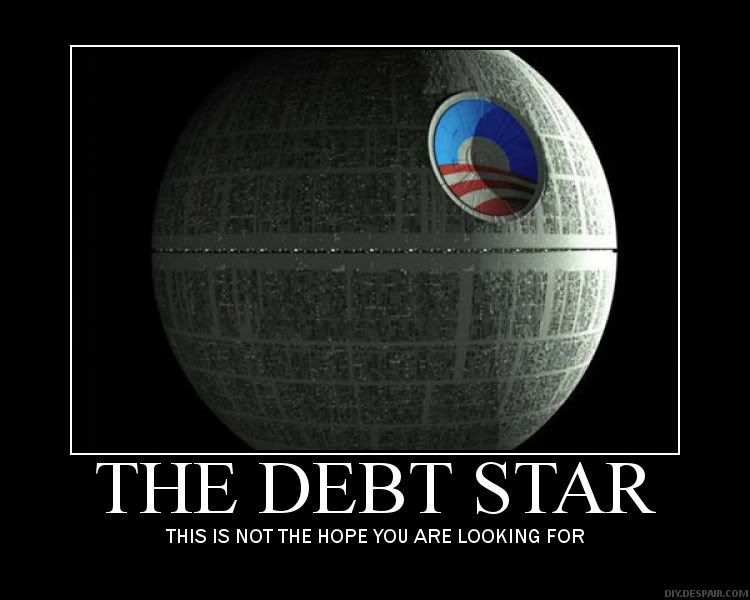
Posted on 11/19/2011 3:44:17 PM PST by blam
ECRI Recession Watch: Decline In Growth Index Continues To Moderate
By Doug Short
November 18, 2011
The Weekly Leading Index (WLI) growth indicator of the Economic Cycle Research Institute (ECRI) posted -7.9 in its latest reading, data through November 11. The latest public data point is less negative than last week's -8.5 and continues the trend off its interim low of -10.1 on October 14.
Last week I posted the November 7th CNBC interview with Lakshman Achuthan, the Co-founder of ECRI. I'm again including video because ECRI continues to feature it on their website here, which I see as evidence that they stand behind their recession forecast.
About half-way through the interview, the discussion turns into an uninformative debate in which Achuthan speaks of a "contagion among the forward leading indicators" but dodged requests for specifics. However, see my reference below to the fascinating quarterly report from Hoisington Investment Management, which offers some insight on a few leading indicators that point to negative GDP.
(Go to the site to view a video)
Background
On September 30th, ECRI publicly announced that the U.S. is tipping into a recession, a call the Institute had announced to its private clients on September 21st. Here is an excerpt from the announcement:
Early last week, ECRI notified clients that the U.S. economy is indeed tipping into a new recession. And there's nothing that policy makers can do to head it off.
ECRI's recession call isn't based on just one or two leading indexes, but on dozens of specialized leading indexes, including the U.S. Long Leading Index, which was the first to turn down — before the Arab Spring and Japanese earthquake — to be followed by downturns in the Weekly Leading Index and other shorter-leading indexes. In fact, the most reliable forward-looking indicators are now collectively behaving as they did on the cusp of full-blown recessions, not "soft landings." (Read the report here.)
For a close look at this movement of this index in recent months, here's a snapshot of the data since 2000.

Now let's step back and examine the complete series available to the public, which dates from 1967. ECRI's WLI growth metric has had a respectable record for forecasting recessions and rebounds therefrom. The next chart shows the correlation between the WLI, GDP and recessions.

A significant decline in the WLI has been a leading indicator for six of the seven recessions since the 1960s. It lagged one recession (1981-1982) by nine weeks. The WLI did turned negative 17 times when no recession followed, but 14 of those declines were only slightly negative (-0.1 to -2.4) and most of them reversed after relatively brief periods.
Three other three negatives were deeper declines. The Crash of 1987 took the Index negative for 34 weeks with a trough of -6.8. The Financial Crisis of 1998, which included the collapse of Long Term Capital Management, took the Index negative for 23 weeks with a trough of -4.5.
The third significant negative came near the bottom of the bear market of 2000-2002, about nine months after the brief recession of 2001. At the time, the WLI seemed to be signaling a double-dip recession, but the economy and market accelerated in tandem in the spring of 2003, and a recession was avoided.
The question had been whether the WLI decline that began in Q4 of 2009 was a leading indicator of a recession. The published index has never dropped to the -11.0 level in July 2010 without the onset of a recession. The deepest decline without a recession onset was in the Crash of 1987, when the index slipped to -6.8. ECRI's managing director correctly predicted that we would avoid a double dip. The nine quarters of positive GDP since the end of the last recession supports ECRI's stance.
The Certainty and Dramatic Language of ECRI's New Recession Call
What is particularly striking about ECRI's current recession call is the fervor and certainty of the language in the public press release:
Here's what ECRI's recession call really says: if you think this is a bad economy, you haven’t seen anything yet. And that has profound implications for both Main Street and Wall Street.
I was astonished at the complete absence of wiggle room in the announcement, nor have I seen any public communications from ECRI to qualify or soften its recession call. ECRI has put its credibility on the line. If the U.S. avoids a recession, ECRI's reputation will be permanently damaged.
The WLI Versus Other Macroeconomic Indicators
For additional perspective on the performance of this indicator, see Comparing ECRI's Weekly Leading Index with Two Key Competitors, which highlights the curious behavior of the WLI following the 2008 Financial Crisis. The chart below is an overlay of the three since 2000. Note: I have divided ECRI's WLI by 10 to display on a single vertical axis with the other two indicators.

ECRI's Weekly Leading Index appears to be more sensitive to upturns than either the Philly Fed's ADS Business Conditions Index (ADS) or the Chicago Fed's Current Activity Index. In fact, it has oscillated in a pronounced fashion since the 2009 recession trough:
Its peak in 2009, interim low in 2010 (which the Institute firmly stated was not a recession signal), the interim high in April 2011, and the current reading, which the Institute has identified as a recession flag.
But What About the 2.5% Q3 GDP?
The higher-than-expected Advance Estimate of Q3 GDP will be seen by many as a repudiation of ECRI's recession call. ECRI itself did not offer a specific date for the start of the forecast recession. A general view is that ECRI's headlights shine about six months into the future, which would make Q1 2012 GDP the critical number for evaluating ECRI's stance.
The U.S. has had eleven recessions since the earliest quarterly GDP calculations, which began in 1948. In the month declared by the National Bureau of Economic Research (NBER) as the beginning of the recession, quarterly GDP for that month has only been negative four times.

ECRI doesn't provide the general public with the analytical details behind its calls, but earlier this month the Hoisington Investment Management quarterly report a similar forecast for negative growth with an interesting analysis that warrants close reading. Here is the opening paragraph and a snippet near from the conclusion:
Negative economic growth will probably be registered in the U.S. during the fourth quarter of 2011, and in subsequent quarters in 2012. Though partially caused by monetary and fiscal actions and excessive indebtedness, this contraction has been further aggravated by three current cyclical developments: a) declining productivity, b) elevated inventory investment, and c) contracting real wage income....
In summary, the case for an impending recession rests not only on cyclical precursors evident in productivity, real wages, and inventory investment, but also on the dysfunctionality of monetary and fiscal policy.
The full report in PDF format is available at the Hoisington website.
Does that mean it is safe to buy stocks now?
The Current FReepathon Pays For The Current Quarters Expenses?

Nah!

Sponsoring FReepers are contributing
$10 Each time a New Monthly Donor signs up!
Get more bang for your FR buck!
Click Here To Sign Up Now!
Disclaimer: Opinions posted on Free Republic are those of the individual posters and do not necessarily represent the opinion of Free Republic or its management. All materials posted herein are protected by copyright law and the exemption for fair use of copyrighted works.